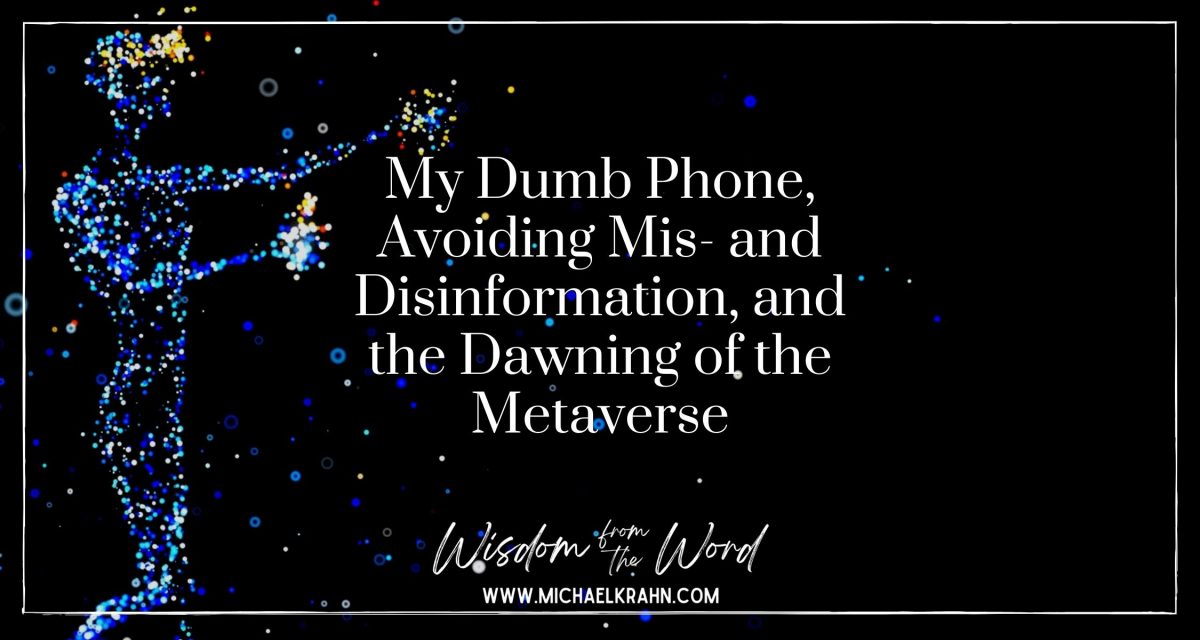I was neither an Apple fanboy nor a hater when I obtained my first MacBook 13 years ago. I was a Mac skeptic: It couldn’t possibly be as good as the hype, I thought. But it was, and soon I was no longer a skeptic.
Having taken an interest in Apple products, I decided to read a lengthy biography of Steve Jobs, written by Walter Isaacson. I had never read a book that size (656 pages) in so short a time. It was fascinating, particularly in providing the backstory to the personal computing revolution.
Strange and Wonderful
Steve Jobs was a strange and wonderful man. As I read his story I oscillated between admiration and repulsion. One minute I wanted to be him; the next to make sure I would never be like him! He is admirable; he is detestable. His creations are indispensable works of genius; they are also conduits of much harm.
He was decisive, no doubt. He was unflinchingly driven and accomplished much. He drove his coworkers and employees hard and often got more out of them than even they imagined they could deliver.

People who worked for him almost unanimously agree that while his style could be demoralizing, it was also oddly inspiring. Inspiring, you might say, in an almost cultish way. As one employee put it, “He would shout at a meeting, ‘You @##%^&%, you never do anything right,’ It was like an hourly occurrence. Yet I consider myself the absolute luckiest person in the world to have worked with him.”
Jobs insisted on working only with “A players,” which meant people who were technically capable, intellectually superior, able to tolerate his abusive tirades and, even better for him, be motivated by them. He unabashedly labelled anyone who wasn’t an “A player” a “bozo,” and dispensed with them at the earliest opportunity.
Mixed Messages
In the final pages of the book, Jobs speaks about the driving force in his life: “I think most creative people want to express appreciation for being able to take advantage of the work that’s been done by others before us,” he said.
“I didn’t invent the language or mathematics that I use. I make little of my own food, none of my own clothes. Everything I do depends on other members of our species and the shoulders that we stand on.
And a lot of us want to contribute something back to our species and add something to the flow. It’s about trying to express something in the only way that most of us know how… We try to use the talents we do have to express our deep feelings, to show our appreciation of all the contributions that came before us, and to add something to that flow. That’s what’s driven me.”
Steve Jobs
I think you’ll agree that his ambitions sound both philosophical and noble. But did he contribute something worthwhile to humanity? The jury is still out.
Steve Jobs’ chief strengths—the ones that enabled him to achieve so much—were his ability to fine-tune his focus to a very narrow point and to eliminate distractions. You would think that someone driven by such noble ambitions would seek to create something that would similarly enable others to experience the same benefits he valued so highly.
So the irony—and part of the tragedy—is that his chief accomplishments, his great creations, drive their users in the opposite direction on both accounts. They broaden our focus and introduce innumerable and persistent distractions.
Jobs’ most successful creations betrayed his own stated values in that they helped to form a nation of users with an inability to attain his strengths: narrow focus and the elimination of distraction. Our iPhones, iPads, and Apple Watches constantly distract us and prompt us to respond to every distraction, to pay immediate attention to our own self-constructed world. And this strikes me as a manifestation of Steve Jobs’ ultimate self-centeredness.
Triumph and Tragedy
Was Steve Jobs successful? Yes, by any worldly standard he succeeded wildly. He built a corporate empire. He joined the elite ranks of the uber-wealthy. In the eyes of the world, his life is the very definition of the American Dream. But from what we know of the story, he fell short of one very important standard that ultimately matters most.
By what standard are we to judge someone’s contributions to humanity? The life of Jesus is a good place to start. Like many people, Jobs admired the life of Jesus as he understood it but was critical of the church. In his own words, Jobs believed that “The juice goes out of Christianity when it becomes too based on faith rather than on living like Jesus or seeing the world as Jesus saw it.”

Sadly, there is precious little evidence that Jobs lived any more like Jesus than those he criticized. He rarely did anything for the benefit of others, and even when he did there often appeared to be an ulterior motive. He didn’t treat people well and was rarely kind. His reactions to people and their ideas were always extremely positive or brutally negative, depending on what he was trying to extract from them.
Love, servanthood, self-sacrifice, God-centeredness, others-centeredness—these are all things that Jesus lived and invited others to live, but by all accounts, they were almost completely absent from the life of Steve Jobs.
Self as Centre
Jobs lived a life of self-centeredness, which is likely the main reason for his success. He managed to live a fantasy that most of us secretly (or openly) desire to live but never will.
He spoke his mind—all the time, regardless of who was decimated by it.
He always said exactly what he was thinking – and when it came to crucial decisions he was right most of the time.
He made enormous sums of money.
He had a clear vision and successfully executed it without compromise.
He revolutionized or created several entire industries in his lifetime.
He succeeded, wildly, and more than once.
And yet, I can’t say that I would trade my life for his. He had very few healthy personal relationships. He treated most people around him like garbage. He didn’t spend much time with his kids. He was widely and intensely admired by those who should have mattered least to him and left a collection of heartaches for those who should have mattered most.
Steve Jobs, possibly more than any other human being before him, gained the whole world, but it’s quite possible that he lost his own soul in the process.

Michael Krahn is the Lead Pastor of the EMMC church in Aylmer, Ontario, where he has served for the last 13 years. He has been married to Anne Marie for 27 years and together they have three daughters (19,18,16). You can find more of Michael’s writing at www.michaelkrahn.com or connect on social media at @Michael_G_Krahn (Twitter), pastor.michael.krahn (IG), and Michael.George.Krahn (Fb)









